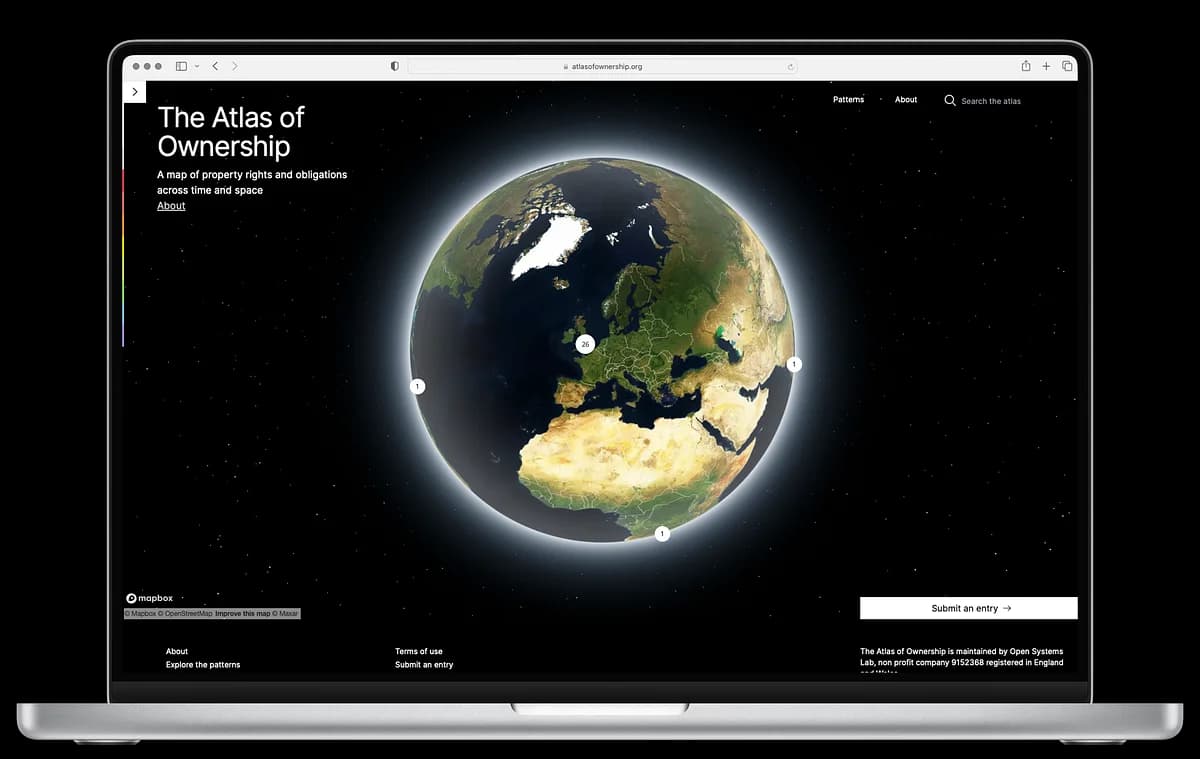AI-Generated Summary
Context and Purpose
The article "To redesign ownership, we need a map" was published by the Open Systems Lab and authored by Alastair Parvin. It discusses the urgent need for a new approach to property rights and ownership in light of various interconnected crises such as housing shortages, economic stagnation, and climate change. The idea is to create an "Atlas of Ownership," which serves as a shared map of property rights and obligations, along with a library of innovative solutions aimed at reshaping the economy.
The Current Crisis
The piece highlights that many of today's pressing issues—like poverty, loneliness, and failing democratic institutions—are a result of outdated systems that struggle to adapt to modern challenges. The author argues that while we possess the technology and resources to tackle these crises, our existing frameworks for ownership and property are inadequate. These systems, rooted in historical contexts, are failing to meet the needs of the 21st century.
Importance of Ownership
Ownership is described as a fundamental concept that shapes various aspects of our lives. The author emphasizes that property rights are often taken for granted, yet they fundamentally dictate economic and social relationships. The text points out that ownership is not merely about legal deeds or contracts; it involves a complex set of rights and responsibilities that can create power dynamics between different groups of people. Ownership rights are characterized as the largest form of wealth globally, influencing everything from personal security to health and well-being.
The Atlas of Ownership
The Atlas aims to "decode" the complexities of property rights by unbundling ownership into essential components, referred to as "patterns." These patterns can be categorized into several classes, such as eligibility, security of tenure, access, and stewardship. This modular approach aims to simplify the conversation around property rights, making it accessible to a broader audience, including those without legal training. The Atlas seeks to document various models of ownership, from modern community land trusts to traditional indigenous practices, showcasing the diverse ways land can be owned and managed.
Unbundling Property Agreements
In an effort to create a comprehensive library of ownership models, the Atlas will include entries that describe the rights and obligations associated with various property agreements. Each entry will focus on a specific set of rights applicable to individuals or organizations, allowing for multiple entries for the same property based on different agreements, such as freehold or leasehold.
Contribution and Collaboration
The article invites readers to contribute to the Atlas, emphasizing that anyone can share their knowledge or submit entries, regardless of their expertise. The initiative aims to create an open experiment where various stakeholders, including academic institutions and community organizations, can collaborate to enhance the understanding of property systems and develop innovative solutions.
The Future of Ownership
Finally, the author stresses that alternative forms of ownership and stewardship already exist and are being implemented globally. These models respond to the failures of traditional property systems, offering pathways for more equitable and sustainable management of land. The call to action is clear: to achieve a flourishing future, society must rethink how we conceive of ownership and property rights, leveraging the lessons learned from existing alternatives.
